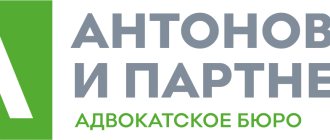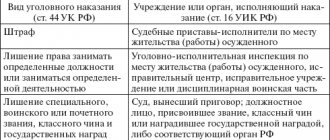ST 187 of the Criminal Code of the Russian Federation.
1. Production, acquisition, storage, transportation for the purposes of use or sale, as well as the sale of counterfeit payment cards, orders for the transfer of funds, documents or means of payment (except for the cases provided for in Article 186 of this Code), as well as electronic means, electronic information carriers, technical devices, computer programs intended for the unlawful reception, issuance, transfer of funds -
shall be punishable by forced labor for a term of up to five years, or by imprisonment for a term of up to six years, with a fine in the amount of one hundred thousand to three hundred thousand rubles, or in the amount of the wages or other income of the convicted person for a period of one to two years.
2. The same acts committed by an organized group, -
shall be punishable by forced labor for a term of up to five years, or imprisonment for a term of up to seven years, with or without a fine in the amount of up to one million rubles or in the amount of the wages or other income of the convicted person for a period of up to five years.
Commentary to Art. 187 Criminal Code
1. The subject of the crime is payment cards, orders for the transfer of funds, documents or means of payment (except for the cases provided for in Article 186 of the Criminal Code); electronic means, electronic storage media, technical devices, computer programs intended for the unlawful acceptance, issuance, and transfer of funds.
2. The objective and subjective aspects of the crime are characterized by the same features as Art. 186 of the Criminal Code, and the rules for qualifying criminal actions in this case are the same as in Art. 186 of the Criminal Code.
Let's consider the composition of the economic crime provided for in Part 1 of Article 187 of the Criminal Code of the Russian Federation
- Object: public relations in the sphere of regulation of the activities of credit and financial institutions related to the issue and circulation of payment cards and other means of payment.
- Objective side: creation, acquisition, storage, transportation for the purpose of use or sale, as well as sale of counterfeit payment cards, money transfer orders, documents or means of payment, electronic means, electronic storage media, technical devices, computer programs created for illegal reception , issuance, transfer of money. The composition of the act is formal; the fact of causing damage (as well as its size) does not matter.
- Subject: a sane individual over 16 years of age.
- Subjective side: guilt in the form of direct intent.
The punishment for illegal circulation of means of payment is enhanced if the act is committed as part of an organized group.
“The disposition of the article under consideration is, to put it mildly, imperfect. Thus, payment cards, orders for the transfer of funds, means of payment, electronic means, electronic storage media and technical devices fall under the concept of “electronic means of payment”, the definition of which is contained in Article 3 of the Federal Law of June 27, 2011 No. 161 . In this case, it is completely unclear why the legislator designated such a variety of subjects for committing a crime. If by the listed terms the legislator meant something other than “electronic means of payment,” then additional clarification is necessary. In addition, it is unclear whether the word “counterfeit” refers only to cards, orders and documents, or whether it includes electronic media, storage media and programs.”
Second commentary to Art. 187 of the Criminal Code of the Russian Federation
1. The item may be counterfeit:
1) payment cards,
2) orders for the transfer of funds, documents or means of payment (except for the cases provided for in Article 186 of the Criminal Code),
3) electronic means, electronic storage media, technical devices, computer programs intended for the unlawful acceptance, issuance, and transfer of funds.
2. Electronic money, in accordance with Art. 3 Federal Law of June 27, 2011 No. 161-FZ “On the National Payment System” - funds that are previously provided by one person (the person who provided the funds) to another person, taking into account information about the amount of funds provided without opening a bank account (the obligated person ), to fulfill the monetary obligations of the person who provided the funds to third parties and in respect of which the person who provided the funds has the right to transmit orders exclusively using electronic means of payment. At the same time, funds received by organizations carrying out professional activities in the securities market, clearing activities, activities for organizing the attraction of investments and (or) activities for managing investment funds, mutual funds and non-state pension funds and accounting for information are not considered electronic funds. on the amount of funds provided without opening a bank account in accordance with the legislation regulating the activities of these organizations.
3. An electronic means of payment is a means and (or) method that allows a client of a money transfer operator to draw up, certify and transmit orders for the purpose of transferring funds within the framework of applicable forms of non-cash payments using information and communication technologies, electronic media, including including payment cards, as well as other technical devices (Article 3 of the 2011 law).
4. The objective side consists of the following forms:
1) manufacturing,
2) acquisition,
3) storage,
4) transportation,
5) sale of any of the objects of the crime.
5. Transportation involves moving objects of crime by any means.
6. Sales of counterfeit payment cards, orders for the transfer of funds, documents or means of payment (except for the cases provided for in Article 186 of the Criminal Code), as well as electronic funds, electronic storage media, technical devices, computer programs intended for unlawful reception, issuing, transferring funds that are obviously unsuitable for use constitutes fraud and is subject to qualification under Art. 1581 of the Criminal Code or the corresponding part of Art. 159 of the Criminal Code. In the case where a person manufactured, acquired, stored, transported for the purpose of sale the specified means of payment, which are obviously unsuitable for use, but due to circumstances beyond his control could not sell them, the act must be qualified in accordance with Part 1 of Art. 30 of the Criminal Code as preparation for fraud, if the circumstances of the case indicate that these actions were aimed at committing crimes under Part 3 or Part 4 of Art. 159 of the Criminal Code (clause 18 of the RF PPVS of November 30, 2017 No. 48
“On judicial practice in cases of fraud, misappropriation and embezzlement”).
7. The crime is completed at the moment of commission of any of the specified actions.
8. The subjective side is characterized by direct intent, and in the first four forms also by the purpose of use or sale.
9. If the production, acquisition, storage, transportation of counterfeit payment cards, orders for the transfer of funds, documents or means of payment (except for cases provided for in Article 186 of the Criminal Code), as well as electronic means, electronic storage media, technical devices, computer programs , intended for the unlawful acceptance, issuance, transfer of funds, the person committed for the purpose of using them to commit a crime under Part 3 or Part 4 of Art. 158 of the Criminal Code, part 3 or part 4 of Art. 159 of the Criminal Code, part 3 or part 4 of Art. 1593 of the Criminal Code or part 3 or part 4 of Art. 1596 of the Criminal Code, which due to circumstances beyond his control could not be completed, then what was done should be qualified as a combination of preparation for the specified crime and the completed crime under Art. 187 of the Criminal Code (clause 18 of the RF PPVS of November 30, 2021).
10. Subject - a person who has reached the age of 16 years.
11. In part 2 of Art. 187 of the Criminal Code provides for a qualifying feature - the commission of a crime by an organized group.
Judicial practice under Article 187 of the Criminal Code of the Russian Federation
The appeal ruling of the Judicial Collegium for Criminal Cases of the Supreme Court of the Russian Federation dated August 7, 2018 N 31-APU18-8
rejected the complaint against the decision of the Deputy Prosecutor General of the Russian Federation N.A. Vinnichenko. dated May 25, 2021 on his extradition to face criminal charges for robbery under Part 4 of Art. 187 of the Criminal Code of Ukraine. Having heard the report of judge A.N. Klimov, the explanations of the applicant D.V. Darmokrik. using a video conferencing system, lawyer E.M. Shevchenko, who supported the arguments of the appeal, asking the court decision to be canceled, the opinion of prosecutor M.V. Pirogov, who believed the decision to be left unchanged, Judicial Collegium
Cassation ruling of the Judicial Collegium for Criminal Cases of the Supreme Court of the Russian Federation dated October 18, 2018 N 127-UD18-16
By the verdict of the Judicial Chamber for Criminal Cases of the Court of Appeal of the Autonomous Republic of Crimea dated August 4, 2005, Asanov was convicted under clause 6, 13, part 2, art. 115 of the Criminal Code of Ukraine to 15 years in prison with confiscation of property, under Part 4 of Art. 187 of the Criminal Code of Ukraine to 14 years in prison with confiscation of property, on the basis of Art. of the Criminal Code of Ukraine for a combination of crimes by absorbing a less severe punishment with a more severe one - to 15 years of imprisonment with confiscation of property, in accordance with Art. The Criminal Code of the Russian Federation, together with the sentence of December 17, 1997 - to 18 years in prison with confiscation of property.
Appeal ruling of the Judicial Collegium for Criminal Cases of the Supreme Court of the Russian Federation dated 09/05/2018 N 18-APU18-14
law enforcement agencies of Ukraine for criminal prosecution under Part 3 of Art. 187 of the Criminal Code of Ukraine. Having heard the report of Judge Vedernikova O.N., the speeches of Negmatzyanov V.N. and lawyer E.M. Shevchenko, who supported the arguments of the complaint, the opinion of the prosecutor of the General Prosecutor's Office of the Russian Federation S.V. Kuznetsov. on leaving the decision unchanged, Judicial Collegium
Resolution of the Presidium of the Supreme Court of the Russian Federation dated September 22, 2021 N 88P21
Skorovarov Anatoly Ivanovich, ... was detained on April 28, 2017 in accordance with Art. Art. 91, 92 of the Code of Criminal Procedure of the Russian Federation on suspicion of committing crimes provided for in clauses “a, b”, part 2 of Art. 172, part 2 art. 187 of the Criminal Code of the Russian Federation.
Resolution of the Presidium of the Supreme Court of the Russian Federation dated September 22, 2021 N 89P21
Lyshchik Andrey Alekseevich, ..., was detained on May 29, 2021 in accordance with Art. Art. 91, 92 of the Code of Criminal Procedure of the Russian Federation on suspicion of committing crimes under Part 1 of Art. 187, part 4 art. 159 of the Criminal Code of the Russian Federation.
Resolution of the Presidium of the Supreme Court of the Russian Federation dated October 6, 2021 N 18-P21
Vitaly Vladimirovich Umerenkov, ..., was detained on November 17, 2015 on suspicion of committing crimes under paragraph “b” of Part 2 of Art. 172, part 1 art. 187 of the Criminal Code of the Russian Federation. By the decision of the judge of the Leninsky District Court of Rostov-on-Don dated November 19, 2015, consideration of the issue of choosing a preventive measure in the form of detention for Umerenkova V.V. postponed, the period of his detention was extended by 72 hours, that is, until 20:00 on November 22, 2015.
Resolution of the Presidium of the Supreme Court of the Russian Federation dated October 6, 2021 N 87-P21
Gamidov Shamil Magomedovich, ... was detained on June 3, 2021 in accordance with Art. Art. 91, 92 of the Code of Criminal Procedure of the Russian Federation on suspicion of committing crimes under Part 2 of Art. 187, paragraph “a”, part 2, art. 172 of the Criminal Code of the Russian Federation.
Third commentary to Article 187 of the Criminal Code of the Russian Federation
1. All the main features of the crime under the commented article coincide with the features specified in the commentary to Art. 186 of the Criminal Code.
2. The specificity of this composition lies in the subject of the crime, to which the legislator refers: counterfeit credit cards; counterfeit payment cards; other payment documents that are not securities. Thus, payment documents should be understood as traveler's checks, personal checks and letters of credit, payment orders. It does not matter in what currency (national or foreign) the denomination of these payment documents is assessed.
3. The objective side is characterized by an act committed in two forms: production for the purpose of sale of counterfeit credit or payment cards, as well as other payment documents that are not securities; sale of these items (see commentary to Article 186 of the Criminal Code). The crime is considered completed from the moment of production of at least one counterfeit copy for the purpose of sale, i.e. from the moment the counterfeit is given all the details necessary for its sale. The corpus delicti is formal.
4. The subjective side is characterized by guilt in the form of direct intent and a special purpose - the desire to sell counterfeit cards.
5. The subject of the crime is general: a sane person who has reached the age of 16.
In Part 2 of this article, liability is increased for the commission of an act by an organized group. ‹ Article 186. Production, storage, transportation or sale of counterfeit money or securitiesUp Article 188. Repealed ›
What does judicial practice show under this article?
Judicial practice under this article is not extensive, because more and more bank cards are receiving very reliable protection against counterfeiting. Fraudsters find it difficult to keep up with modern technology, so they use other methods of counterfeiting or stealing money.
Examples of cases:
- Citizen P. tried to pay for expensive food products with a card in a store. The terminal did not work, so the purchases were unsuccessful. Security drew attention to the citizen and called the police to verify her identity. It turned out that P. tried to pay for purchases with a fake card, which she made with her programmer husband. The investigation found that they provided card production services to other citizens. P. and her husband were arrested. The court sentenced them to 5 years in prison each.
- Citizen E. tried to get money from a payment document at the bank. The operator noticed that the document was suspicious, she called the security, and they called the police. E. was interrogated and admitted that he had forged a document in order to enrich himself at the expense of the bank. He was put on trial and investigated. At the trial, he received fines and compulsory labor, and a suspended 2-year prison term.
- Citizen V. worked at a bank in the department for issuing credit cards. She used them to enrich herself, falsified documents to obtain them, and then did not return the money. This was discovered, she was arrested, and an investigation began. The court decided to classify the case under Article 187, but since she did not falsify the card itself, V. was accused of fraud. She was given 5 years in prison.
What decisions are most often made under Article 187?
Cases under this article often end in guilty decisions. In 2017, 43 cases were processed through it, of which 40 were in 1 part. Of these, 1 person was acquitted, 7 were deprived of their freedom. 31 received suspended sentences, 1 received a fine.
Illegal circulation of means of payment
1. Production, acquisition, storage, transportation for the purposes of use or sale, as well as the sale of counterfeit payment cards, orders for the transfer of funds, documents or means of payment (except for the cases provided for in Article 186 of this Code), as well as electronic means, electronic information carriers, technical devices, computer programs intended for the unlawful reception, issuance, transfer of funds -
shall be punishable by forced labor for a term of up to five years or imprisonment for a term of up to six years with a fine in the amount of one hundred thousand to three hundred thousand rubles or in the amount of wages or other income of the convicted person for a period of one to two years.
2. The same acts committed by an organized group, -
shall be punishable by forced labor for a term of up to five years, or imprisonment for a term of up to seven years, with or without a fine in the amount of up to one million rubles or in the amount of the wages or other income of the convicted person for a period of up to five years.
Judicial practice: sentences and punishment under Art. 187 of the Criminal Code of the Russian Federation
- Resolution of the Plenum of the Supreme Court of the Russian Federation dated... PLENARY OF THE SUPREME COURT OF THE RUSSIAN FEDERATION DECISION dated December 27, 2002 N 29 ON JUDICIAL PRACTICE IN CASES OF THEFT,...
- Decision of the Supreme Court: Determination N 203-APU17-21... THE SUPREME COURT OF THE RUSSIAN FEDERATION Case No. 203-APU17-21 APPEAL DECISION Moscow August 31, 2021 Judicial Collegium for Military Personnel of the Supreme...
- Decision of the Supreme Court: Resolution No. 310P13 dated... DECISION OF THE PRESIDIUM OF THE SUPREME COURT OF THE RUSSIAN FEDERATION Case No. 310-P13 Moscow January 23, 2014 Presidium of the Supreme Court of the Russian Federation...
- Decision of the Supreme Court: Determination No. 38-АПУ17-2 dated... THE SUPREME COURT OF THE RUSSIAN FEDERATION No. 38-АПУ17-2 APPEAL DECISION Moscow March 1, 2021 Judicial Collegium for Criminal Cases of the Supreme Court...
- Resolution of the Plenum of the Supreme Court of the Russian Federation dated... PLENARY OF THE SUPREME COURT OF THE RUSSIAN FEDERATION DECISION of November 15, 2021 N 48 ON THE PRACTICE OF APPLICATION BY COURTS OF LEGISLATION GOVERNING FEATURES...
- Judicial Collegium for Criminal Cases, appeal:... THE SUPREME COURT OF THE RUSSIAN FEDERATION Case No. 72-APU 17-21 APPEAL DECISION Moscow October 04, 2021 Judicial Collegium for Criminal Cases...
- Resolution of the Plenum of the Supreme Court of the Russian Federation dated... PLENAUM OF THE SUPREME COURT OF THE RUSSIAN FEDERATION DECISION dated June 25, 2021 N 18 ON JUDICIAL PRACTICE IN CASES OF CRIMES,...
- Resolution of the Presidium of the Supreme Court of the Russian Federation dated... PRESIDIUM OF THE SUPREME COURT OF THE RUSSIAN FEDERATION DECISION dated December 5, 2018 N 126-P18 ON RESUMING PROCEEDINGS IN THE CASE DUE TO NEW...
- Resolution of the Plenum of the Supreme Court of the Russian Federation dated... PLENAUM OF THE SUPREME COURT OF THE RUSSIAN FEDERATION DECISION dated December 17, 2021 N 43 ON SOME ISSUES OF JUDICIAL PRACTICE IN CASES...
- Ruling of the ECtHR dated 02/14/2017 EUROPEAN COURT OF HUMAN RIGHTS THIRD SECTION CASE “MASLOVA VS. RUSSIAN FEDERATION” (Complaint No. 15980/12) JUDGMENT…






